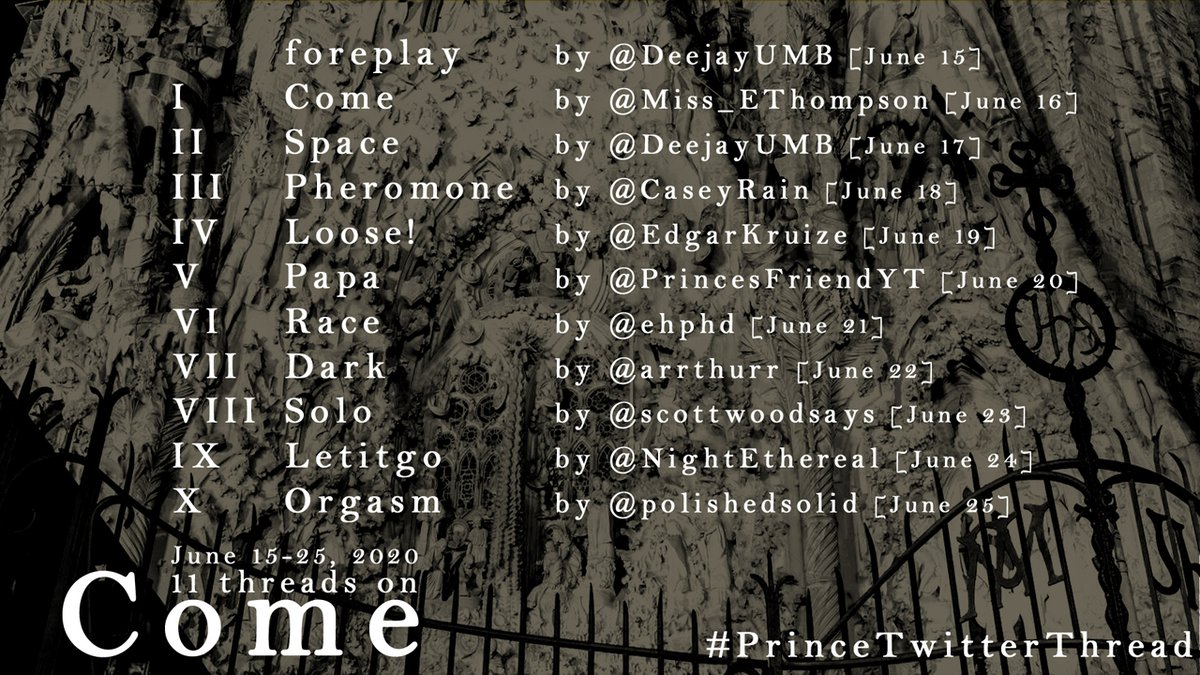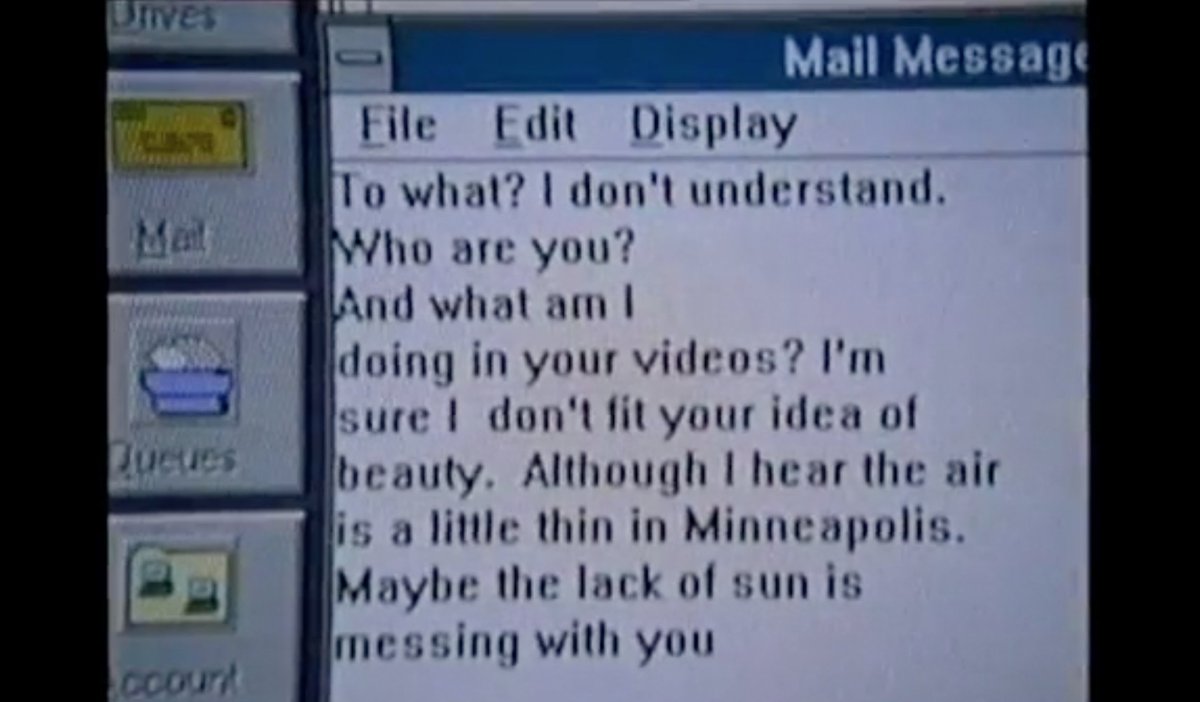Today is the 7th day of the #PrinceTwitterThread (organized by @deejayumb) for Prince’s 1994 album Come. And today I’m tweeting about the 6th song on the album: “Race”
FYI this is a somewhat long thread. I hope you enjoy it!
tandfonline.com/doi/abs/10.108…
The LAPD beating of Rodney King
Soon Ja Du’s murder of Latasha Harlins
The Crown Height’s Uprising
The Anita Hill's credible Senate testimony on Clarence Thomas sexually harassing her; and Thomas’ erroneous claims that the hearings were a “high-tech lynching”
"Race
In the space I mark human (Face the music)
Race
Face the music
We all bones when we dead
Race
In the space I mark human (Face the music)
Cut me, cut you
Both the blood is red”
colorblind is bad:
scholars.duke.edu/display/pub130…
ibramxkendi.com/how-to-be-an-a…
dukeupress.edu/the-erotic-lif…

If you like this thread (minus the Pam mess up lol), please pre-order my book *Sounds from the Other Side*: upress.umn.edu/book-division/…
Also, you check out my other writing on my faculty page: cla.umn.edu/about/director…





